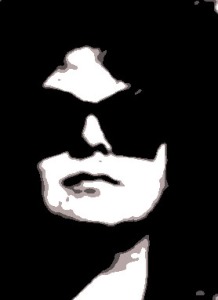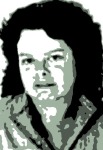
Color ain’t no faucet
You can’t turn it off and on
I say, color ain’t no faucet
You can’t turn it off and on
Tell the world who you are
Or you might as well be gone
(Excerpt from Within the Veil) by Michelle Cliff
Michelle Cliff’s Abeng came out in 1984. Browsing a book store in Berkeley, I saw the title and wanted to know who was this person writing about my Jamaican culture. The Abeng horn was connected to freedom and liberation in Jamaica, especially among the Maroons. It announced, called the people to action and was a signal to unite and fight the enemy. I bought and devoured Cliff’s first novel, in the bildungsroma genre, and could well empathize with the young Clare Savage, the protagonist of that novel that is set in colonial Jamaica. I wanted to meet this Michelle Cliff.
When my short story collection, Bake-Face and Other Guava Stories, was being published I asked my publisher to reach out to Cliff for a blurb, and she very generously wrote:
“I greet this collection of writing by Opal Palmer Adisa with enthusiam and joy, and a touch of awe…Adisa’s stories chart the experience of island-women with a deep understanding and compassion, and a true sense of their terror and pride, the ghosts that dog their tracks…Adisa makes Jamaica and her women live for us as few before her have done.” Michelle Cliff
I was blown away by this endorsement as we had not yet met or had contact, but I was determined that this would happen.
I sought out Cliff, and we became friends, especially after she moved to California in 1999, where I had been living. Cliff always encouraged and supported me and my work. When I was working on my doctorate on Caribbean Women Writers at UC Berkeley in 1987, Cliff was one of the first writers I interviewed, and after I completed my degree an excerpt of the interview was published
Journey into Speech-A Writer between Two Worlds: An Interview with …
https://www.jstor.org/stable/pdf/10.2307/3041999.pdf Among the subjects Jamaican born writer Michelle Cliff ex- … The following text is based on two separate interviews: one … 01994 Opal Palmer Adisa .
The Michelle Cliff I knew was shy and soft spoken, a gentle soul, who wanted to lead a very private life, despite being the partner of the very famous and late poet, Adrienne Rich. Although she felt estranged from Jamaica, and refused to return because of Jamaica’s homophobia and violence, Cliff was nonetheless deeply in love with Jamaica and researched its culture which is the setting of both Abeng and No Telephone to Heaven, her first two novels.These works, like her other works explore the very thorny issue of race and class in identity formation, and the impacts and residual effects of post-colonialism.
I spoke with Michelle Cliff about a month ago. She said she was not feeling or doing well, but thanked me for the call, and like always asked about my children. I promised that I would visit with her in the fall when I will be in California, and perhaps do another interview, a continuation of the first. Michelle Cliff’s works are important contributions to the Caribbean canon, and her death will leave a void. Her poetry/prose collection, Claiming an Identity They Taught Me to Despise, 1980 is an important work that I have taught, along with her other novels.
I hope you are rocking in the arms of peace and the cool breeze from the Blue Mountains, our island home, enfolds. Be well my sister in letters and friendship –Michelle Cliff, you will not be forgotten.
Michelle Cliff is the author of the following books:
- 1998:The Store of a Million Items (New York: Houghton Mifflin Company). Short stories
- 1993:Free Enterprise: A Novel of Mary Ellen Pleasant (New York: Dutton). Novel
- 1990:Bodies of Water (New York: Dutton). Short stories
- 1987:No Telephone to Heaven (New York: Dutton). Novel (sequel to Abeng)
- 1985:Abeng (New York: Penguin). Novel
Prose poetry
- 1985:The Land of Look Behind and Claiming (Firebrand Books).
- 1980:Claiming an Identity They Taught Me to Despise (Persephone Press).

OMG Opal. i feel devastated by this loss. i only finally read Cliff about 6 months ago and was blown away by her brilliance as a writer. had no idea she wasn’t well. what a loss. what a loss.
LikeLike
Thank you Professor Adisa for letting us know. Michelle Cliff meant so much to me: http://rhoneedifies.blogspot.com/2016/06/how-michelle-cliff-1946-2016-taught-me.html
LikeLike
Thanks for that piece. I was so shocked by the NYT obit on Sunday–a week after Cliff’s death–and by the deafening silence elsewhere. I contacted NPR, told them I’d be willing to talk (I wrote about her under the name Meryl Schwartz met with her a few times) and that other scholars would as well. No response. I am planning a blog post as well. Beyond the power of her work, I most fondly remember how easy it was to talk with her and the gossip she shared about Audre Lorde. I had no idea she was ill and wish her death were receiving more attention.
LikeLike
Everything is very open with a precise description of
the challenges. It was really informative. Your
site is very helpful. Thank you for sharing!
LikeLike
This is very fascinating, You are an overly skilled blogger.
I have joined your rss feed and look ahead to in quest of more of your excellent post.
Additionally, I’ve shared your site in my social networks
LikeLike